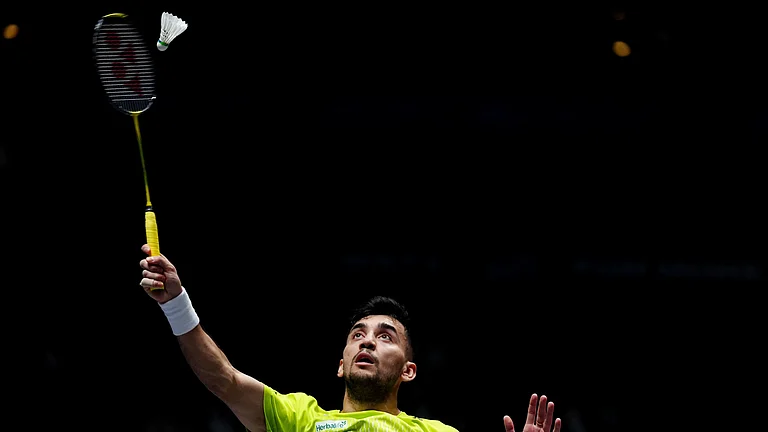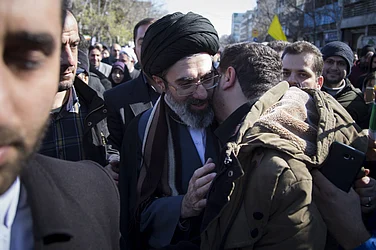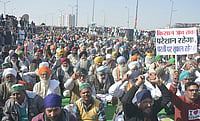In the latest step to end the Syrian isolation at the international stage, Syrian President Bashar al-Assad on Thursday arrived in China.
The visit to China comes at a time when Assad is working to end his 12-year-long international isolation and when China is looking to expand its influence in the Middle East and challenge the United States at the world stage.
Assad has arrived in China where he would attend the opening ceremony of the Asian Games at Hangzhou and have engagements with the Chinese leaders, including President Xi Jinping.
Here we explain what we know about Assad's visit, how he is trying to end Syria's international isolation, and what the trip could achieve.
What do we know of Syrian President Assad's visit to China?
Syrian President Bashar al-Assad arrived in China on Thursday. This is his first visit to China since 2004.
Assad became the ruler of Syria after his father Hafez al-Assad died in 2000. The Assad Senior had ruled the country during 1971-2000. While initially seen as a moderniser, Assad and his government became a pariah in 2011 over the brutal crackdown of anti-government protests that grew into a full-fledged civil war. The Syrian Civil War saw Western sanctions being slapped on him and Syria and led to the isolation of Syria at the world stage.
That decade-long isolation has started to give way to cautious engagement and Assad's visit to China is part of efforts to improve international engagement.
Besides attending the Asian Games opening ceremony, Assad will hold "in-depth talks" with Chinese President Xi Jinping on a range of issues, according to Chinese Foreign Ministry.
Assad’s office said earlier that he was invited by Xi and would bring with him a high-ranking Syrian delegation, reported the Associated Press (AP).
Assad's bid to end Syria's international isolation
Being seen at an international stage with other leaders at the Asian Games would bolster the Syrian assertion that the country is no more a pariah to the world.
Xi is hosting other leaders of countries too who are particularly friendly to China, such as the Prime Minister of Nepal Pushpa Kamal Dahal 'Prachanda', a former Maoist who had waged a civil war in Nepal against the monarchy.
"Assad will attend Saturday’s Asian Games opening ceremony before leading a delegation in meetings in several Chinese cities...Being seen with China’s president at a regional gathering adds further legitimacy to Assad’s campaign to return to the world stage," noted Arab News.
While still under Western sanctions, Syria's international isolation has started to diminish. In May, Arab League, the apex grouping of the Arab countries in the Middle East, re-admitted Syria. The grouping had expelled Syria in 2011 when the West started slapping the country with sanctions.
"Officials and analysts have said that Syria’s re-admission into the Arab League, while symbolic, comes with the possibility it could enable Assad’s rehabilitation internationally, and potentially allow the removal of crippling sanctions against his regime," noted CNN.
Last year, Syria had also joined China's Belt and Road Initiative (BRI), which is seen as a Chinese tool for global dominance in the garb of building infrastructure projects. Lately, China has also been expanding influence and outreach in the Middle East. Earlier this year, China was seen as a key element in facilitating the normalisation of relations between Iran and Saudi Arabia.
"China has been expanding its reach in the Middle East after mediating a deal in March between Saudi Arabia and Iran, and it continues to support Assad in the Syrian conflict, which has killed half a million people and left large parts of the nation in ruins," noted AP.
In addition to increasing influence in the Middle East, China also looks forward to engaging with Syria as Syria and United States are on adversarial terms and China seeks to challenge the United States at world stage.
"In his third term, Xi Jinping is seeking to openly challenge the US, so I don’t think it’s a surprise that he is willing to…host a leader like Assad...It will further marginalise China in the world, but he doesn’t care about that," said Alfred Wu of Lee Kuan Yew School of Public Policy in Singapore, as per Arab News.
Syrian hopes for Chinese aid in reconstruction
Large parts of Syria, including the government-controlled areas, are in badly damaged today after 12 years of Syrian Civil War.
There is also widespread poverty in Syria and Western sanctions worsen the issues as supply of aid is affected. This was also seen earlier this year when a devastating earthquake hit the region and while the world converged on Turkey to help it, little aid trickled into Syria.
"The UN says the levels of poverty and food insecurity faced by Syrians today are unprecedented. The World Food Programme estimates that as of 2022 more than 12 million Syrians –more than half of the country’s population– are food insecure," noted CNN, adding that the Western sanctions have made the Syrian economy untouchable, which means that few people and countries would be willing to trade with Syria.
In such conditions, Assad would also be looking forward to investment and grants in Syria for reconstruction and economic revival.
The New York Times reported that China would also be eyeing a foothold in Syria to get a strategic port in the country.
In the long term, China sees the port in Latakia, Syria, as a place of strategic importance in its ambitions to gain a foothold in the Mediterranean Sea, but China has been cautious so far, keeping its investments in Syria modest, said Julia Gurol-Haller of the University of Freiburg in Germany to NYT.
In 2017, China had pledged $2 billion to aid Syria, but much of that aid is yet to materialise and Assad would try to bring that up during the visit.
In 2008-09, China had invested around $3 billion in petroleum extraction and other energy ventures in Syria, but the projects were wrapped in 2014 amid Western sanctions. Assad would also hope for some sort of revival, even if partial, of those projects now that the civil war is in a stalemate and China no longer care much for Western sensitivities.
Royal United Services Institute (RUSI) analyst Samuel Ramani told Reuters, "Syria has been trying to get investment from China for a long time ... but the big question is whether any proposals discussed during this visit turn into actual projects. At the moment, China is pretty frustrated with the West, and Syria is trying to develop ties with more countries, but can that be converted into something tangible?"






















